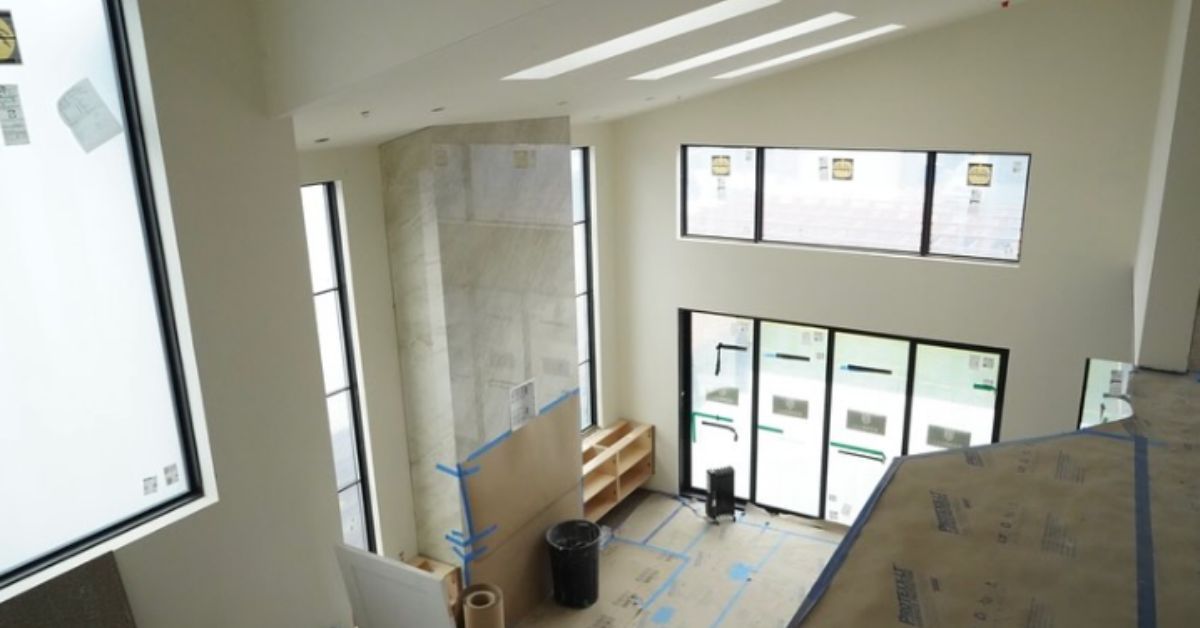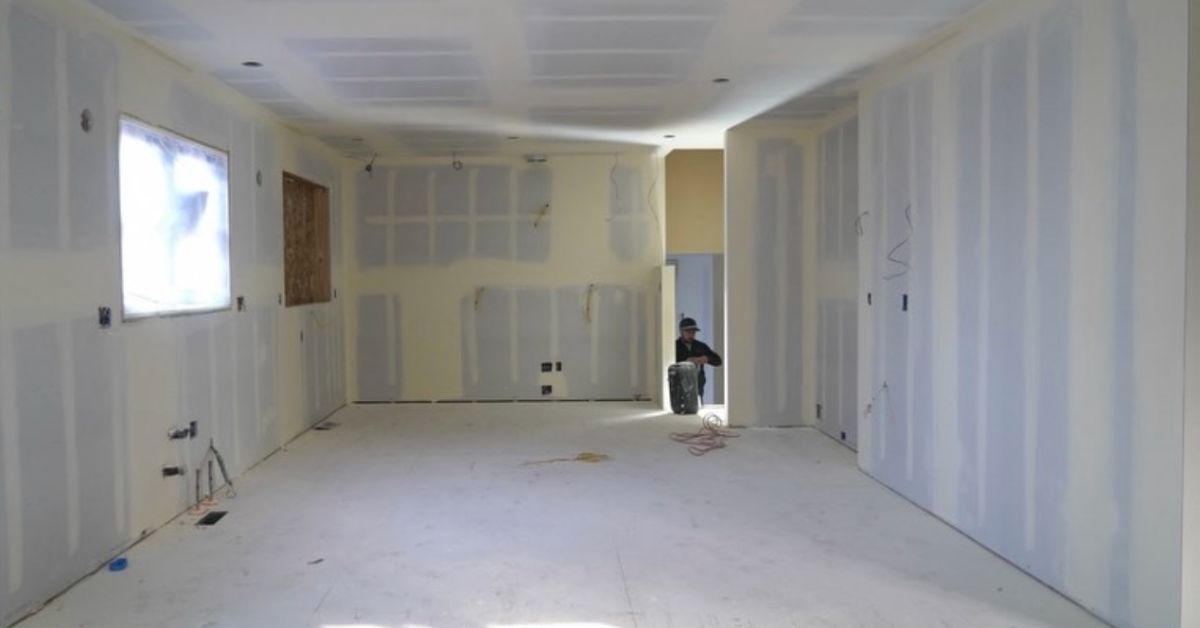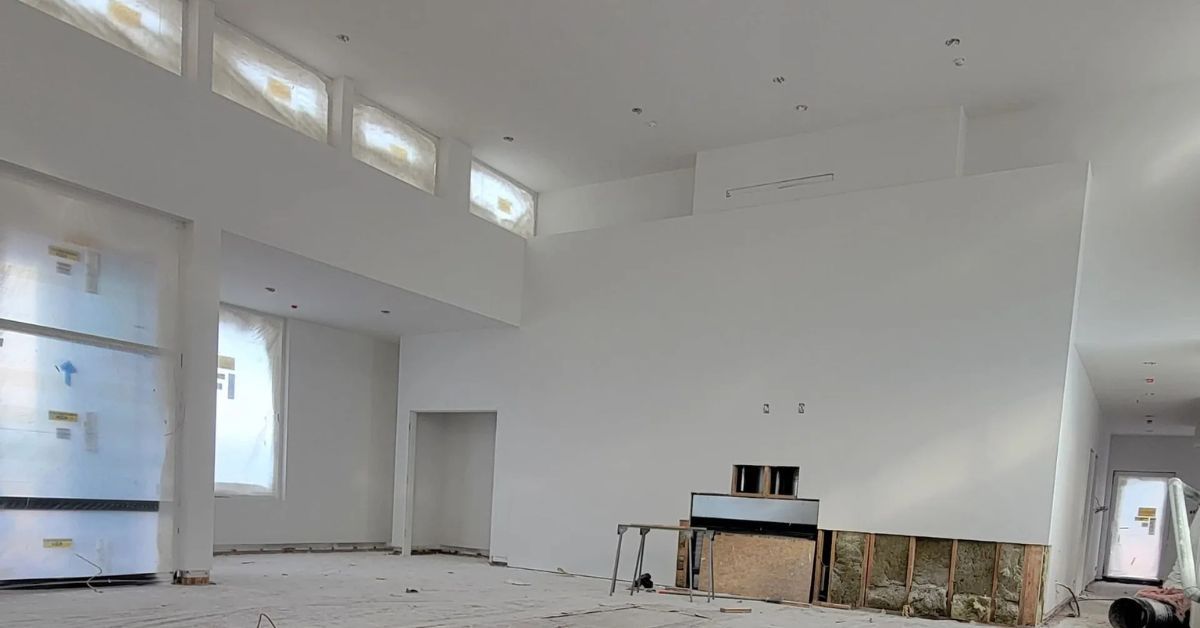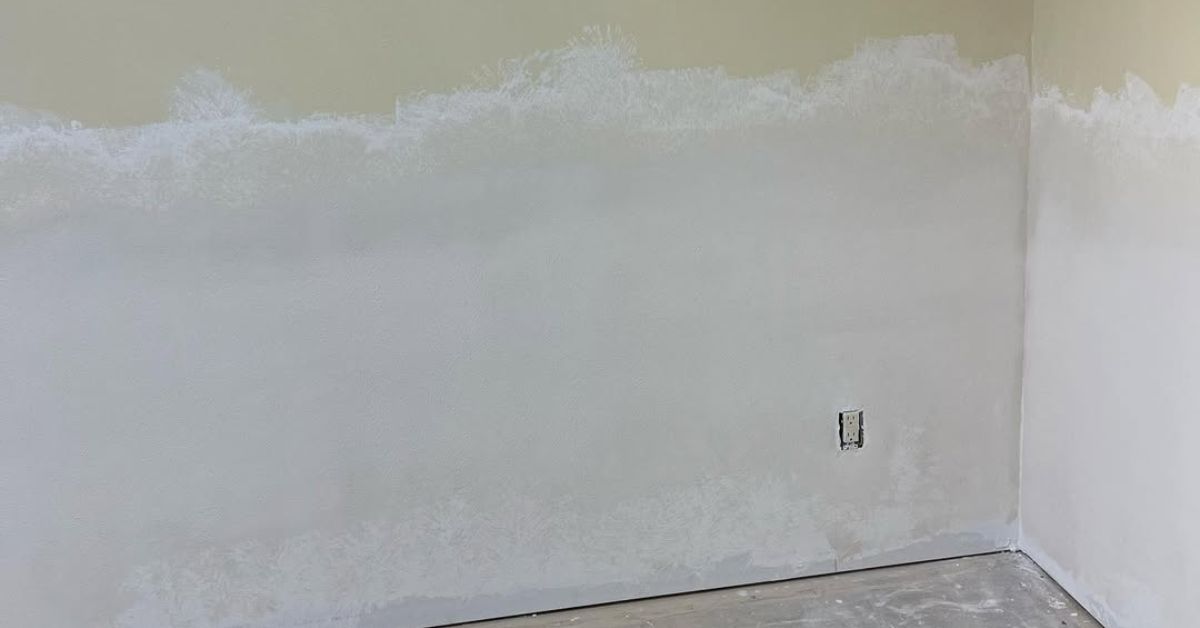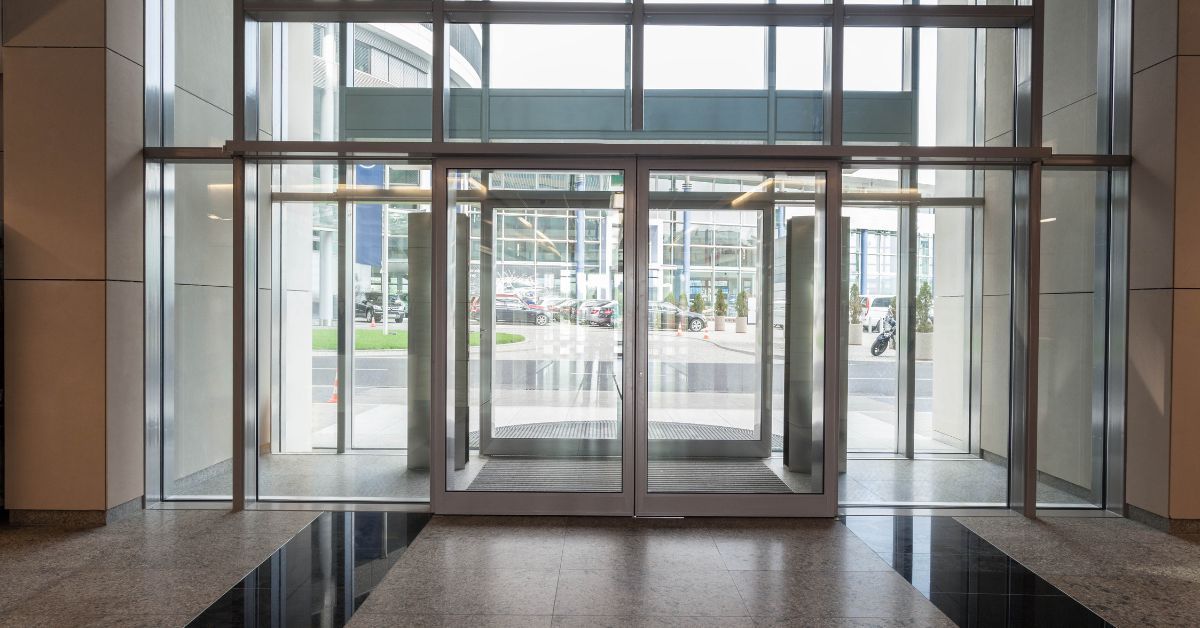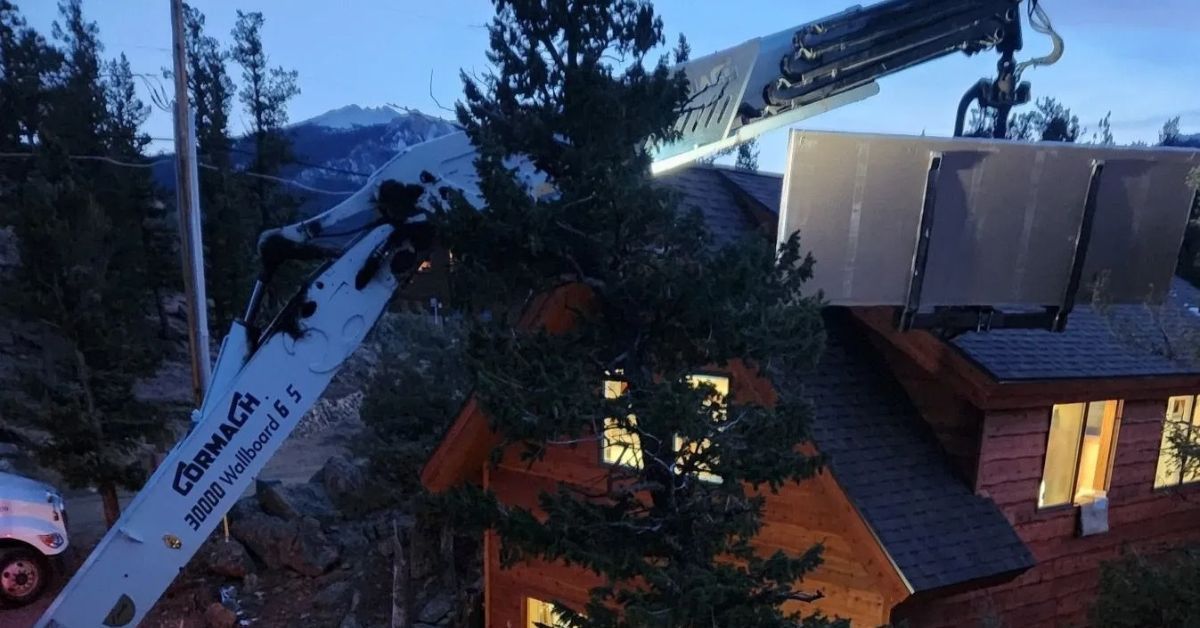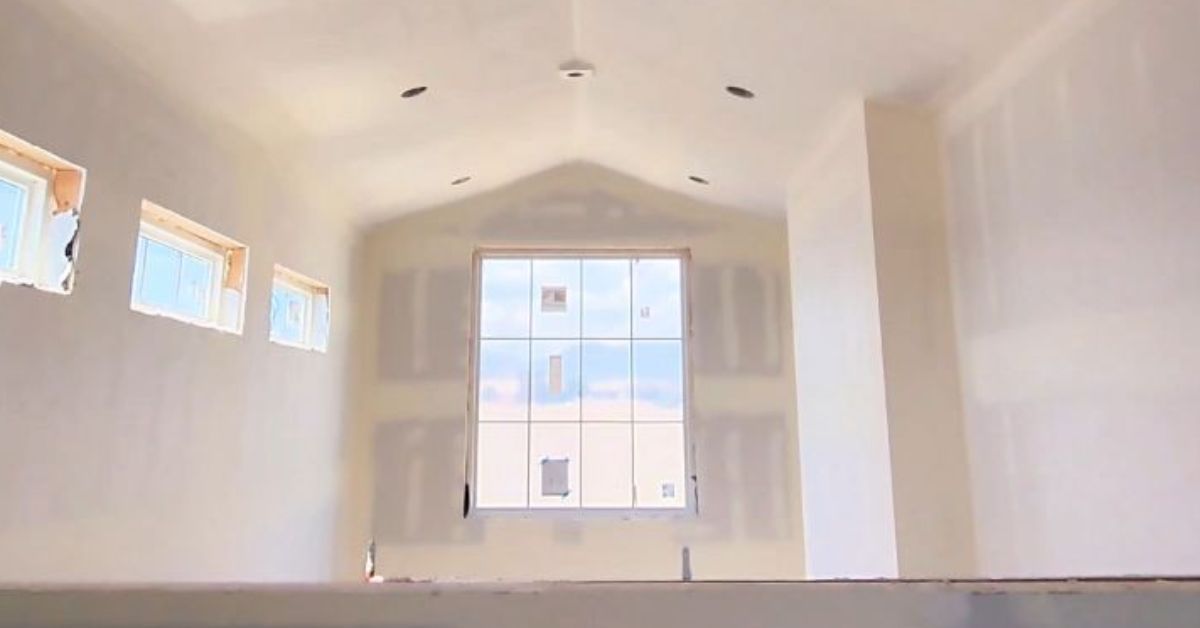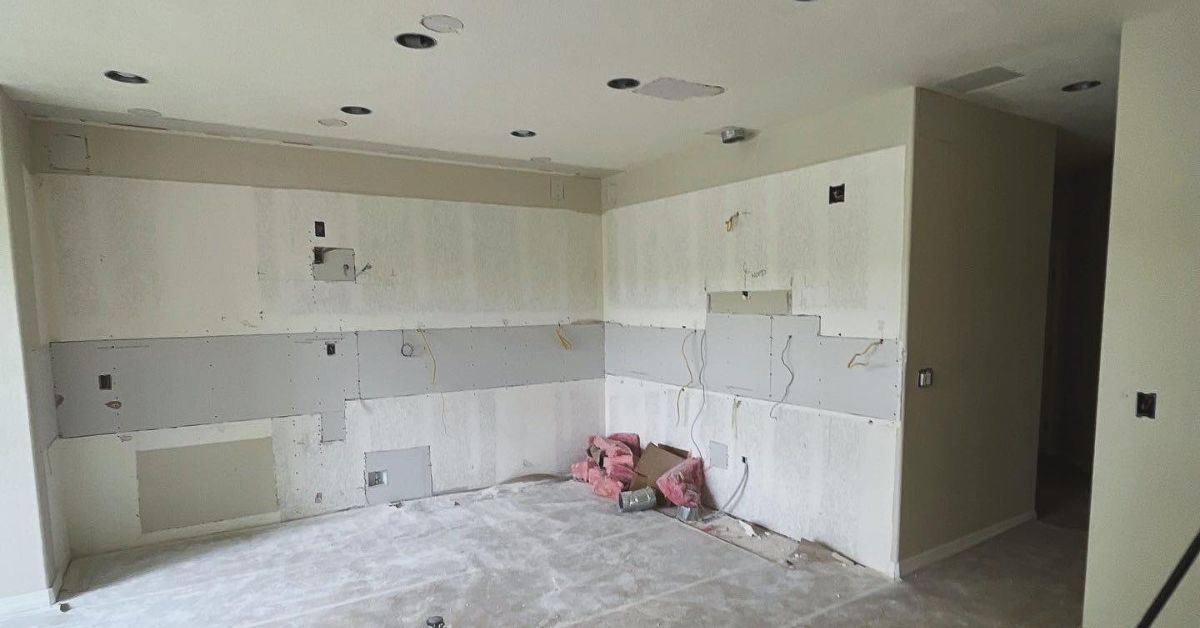5 Benefits of Installing Drywall in Your Basement
2. Structural Support and Foundation Protection
A drywall installation works with existing foundation elements to distribute loads and prevent structural damage over time. This way, you’ll have a home with a strong foundation for long-term support.
Load Distribution Capabilities
Drywall systems distribute weight loads from upper floors across foundation walls to reduce stress concentrations that can cause cracks or settling issues. Professional installations create attachment points that transfer loads safely to foundation elements.
To secure these connections, contractors use fasteners and framing techniques between drywall systems and foundation walls. The connections provide structural stability while allowing for natural foundation movement that occurs over time.
Crack Prevention Technology
Modern drywall installation techniques include crack prevention systems that accommodate foundation settling without compromising wall integrity. These systems use flexible joint compounds and reinforcement materials that flex with minor foundation movements. Specialists will install compatible materials so that the walls remain crack-free even as the foundation settles.
Seismic Protection Features
Properly installed drywall systems provide seismic protection by creating flexible wall assemblies that absorb energy from ground movement. During installation, contractors use seismic clips and flexible connections to allow walls to move safely during earth tremors. In basements, they prioritize these features to prevent rigid connections from transferring damaging forces to foundation elements.
By taking the seismic activity into account, insurance companies will also recognize quality installations that protect residents and reduce claim risks. These insurance benefits provide ongoing savings that help offset installation costs while preserving your property investment.
3. Energy Efficiency and Insulation Advantages
Basement drywall installation creates opportunities for improved insulation and thermal barrier performance. This allows you to save money on energy consumption and utility costs.
Thermal Barrier Performance
Drywall systems create effective thermal barriers that prevent heat loss through basement walls and reduce heating costs throughout the winter months. Thermal imaging equipment is a great resource to verify the insulation’s effectiveness and identify areas that need additional attention. This technology offers continuous insulation coverage that eliminates thermal bridges and cold spots.
Insulation Integration Systems
Professional drywall installation integrates well with various insulation materials to create comprehensive thermal protection systems. Contractors understand how different insulation types work with drywall materials and select combinations that optimize energy performance. They also know how to prevent compression and moisture damage that can reduce insulation performance.
Air Sealing Benefits
With a drywall installation, you can have comprehensive air sealing that prevents heated air from escaping through wall cavities. These air sealing benefits extend beyond energy savings to include improved indoor air quality and reduced dust infiltration. Your basement becomes a comfortable, healthy living space that contributes to overall home efficiency with professional drywall installation.
To create a comfortable, functional living space below ground level, a professional drywall installation transforms damp, unfinished basements into beautiful rooms. These installations also add value to homes and provide protection against moisture and structural issues. Discover the benefits of installing drywall in your basement to keep it dry, comfortable, and structurally sound for years to come.
1. Moisture Protection and Waterproofing Benefits
Moisture control is a primary concern when finishing basement spaces. Drywall installation creates a line of defense against water damage.
Vapor Barrier Installation
Drywall contractors install vapor barriers behind drywall panels to prevent moisture from penetrating the walls. The barriers redirect condensation away from living spaces and protect insulation materials from water damage.
The installation process involves carefully measuring wall dimensions and cutting vapor barrier materials to fit snugly against the foundation walls. Contractors seal all joints and penetrations to create an unbroken moisture barrier.
Mold and Mildew Prevention
Moisture-resistant drywall materials specifically designed for basement applications help prevent mold and mildew growth that can compromise indoor air quality. The specialized materials contain additives that resist fungal growth in high-humidity environments.
Hiring an installation company is a great way to guarantee thorough ventilation around drywall panels, allowing air circulation that prevents moisture buildup. Contractors understand how to create small gaps behind panels that promote airflow and maintain structural integrity.
Humidity Control Systems
Drywall installation works in conjunction with humidity control systems to control moisture levels throughout basement spaces. Professional contractors coordinate with HVAC specialists to properly integrate these wall systems and climate control equipment.
This coordination allows ventilation systems to work effectively with drywall barriers to produce consistent humidity levels. Proper integration prevents condensation buildup that can damage both drywall materials and underlying structural elements.
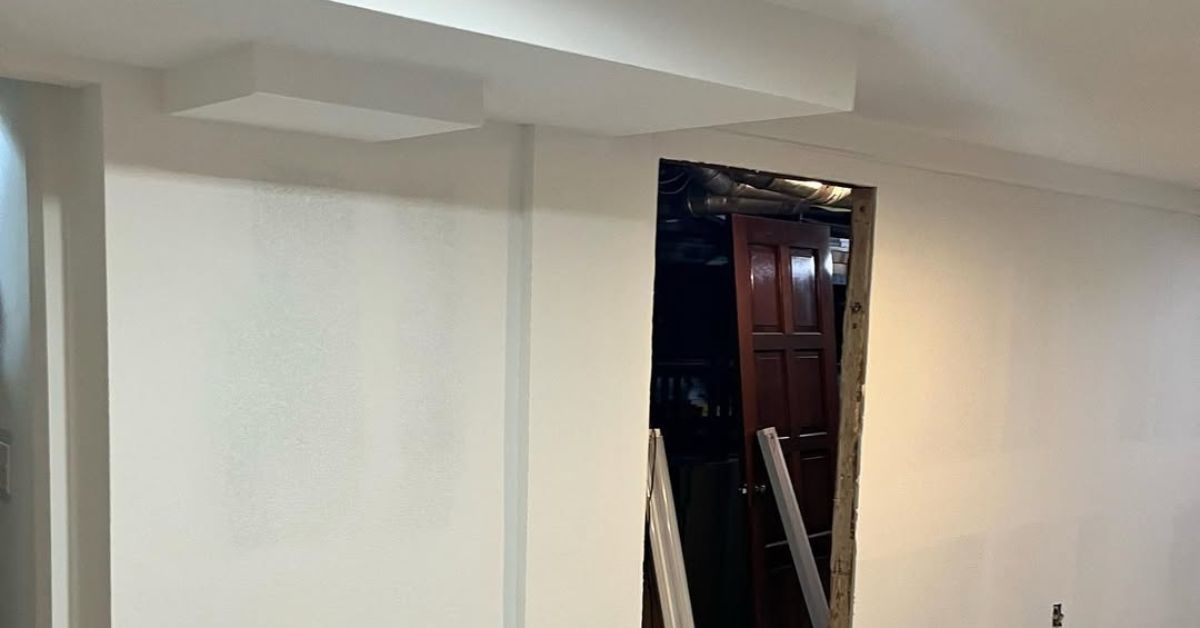
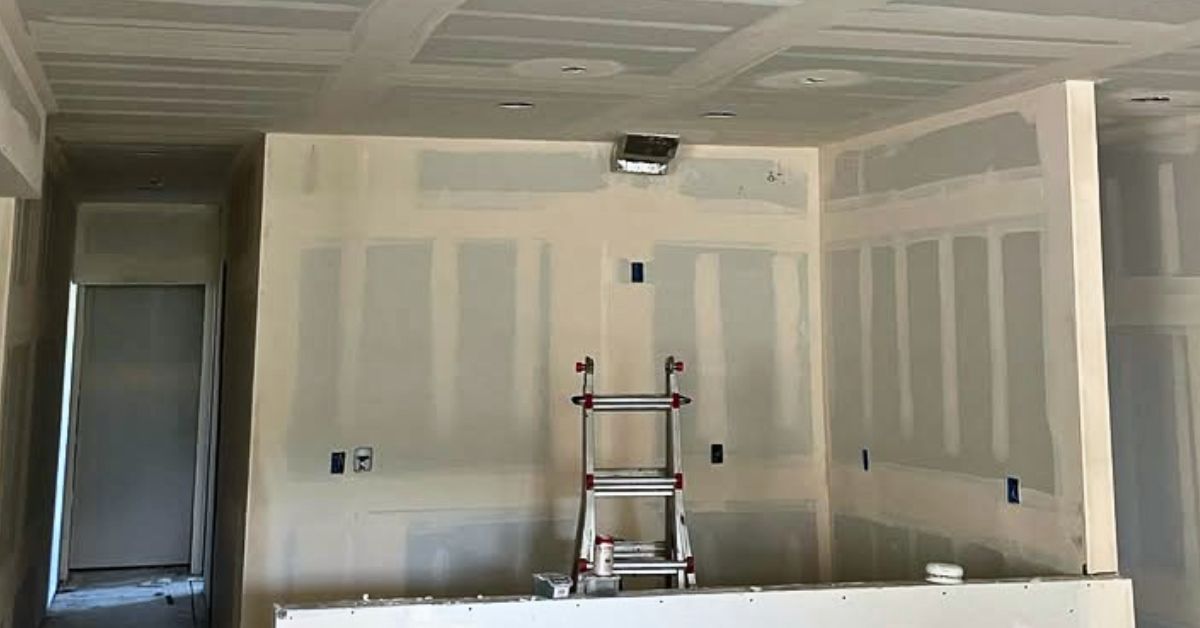
4. Fire Safety and Building Code Compliance
While you can install drywall in your basement as a DIY project, professional drywall installation guarantees that your basement meets fire safety requirements and building code standards that protect your family and property.
Fire-Resistant Material Selection
Fire-resistant drywall contains additives that slow flame spread and provide structural integrity during high-temperature exposure. Building codes require specific fire-resistant drywall materials for basement installations, and professional contractors understand which materials meet local requirements.
Egress Window Integration
Working with professionals allows you to coordinate with egress window requirements so that basement occupants have safe exit routes during emergencies. Contractors understand how to frame window openings and integrate them with drywall systems. This integration includes proper flashing and sealing around window frames to prevent water infiltration while complying with local fire safety regulations.
Electrical System Protection
Drywall installation protects electrical systems from moisture damage while providing fire-resistant barriers around electrical components. Contractors coordinate with electricians to determine box placement and sealing techniques that prevent moisture infiltration and comply with electrical safety standards.
5. Soundproofing and Acoustic Improvement
Basement drywall installation provides excellent opportunities for soundproofing that creates quiet, comfortable living spaces. Investing in a professional installation maximizes these acoustic benefits through proper material selection and installation techniques.
Sound Transmission Reduction
Specialized drywall materials designed for acoustic performance significantly reduce sound transmission between basement spaces and upper floors. The installation process includes techniques that minimize sound bridging through framing members and other structural elements. By using resilient channels and sound-dampening materials, these installations optimize acoustic performance.
Vibration Isolation Systems
Decoupling prevents noise transmission through wall structures for residents to enjoy their everyday activities without distressing sounds throughout the day. This is particularly important in basements that house HVAC equipment or other mechanical systems.
If you’re building a custom home or need supplies for a construction project, partner with our team at Rival Drywall for high-quality materials. We are a residential drywall company in Colorado whose specialists provide exceptional service and guidance throughout your renovations. For more information regarding our products and services, contact our team for a consultation today!


